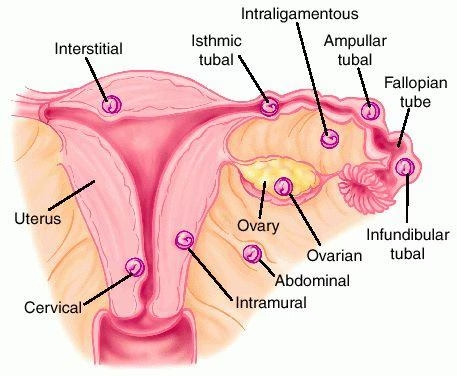Introduction
Pregnancy is usually a time of joy and anticipation, but not all pregnancies develop in the right place. An ectopic pregnancy occurs when a fertilized egg implants outside the uterus, most often in the fallopian tube. This condition, sometimes referred to as a tubular pregnancy, is a serious medical emergency that requires immediate care. Understanding the signs of ectopic pregnancy, the risks involved, and the treatment options available is essential for saving lives and protecting future fertility.
What is an Ectopic Pregnancy?
An ectopic pregnancy happens when a fertilized egg cannot reach the uterus and instead attaches elsewhere in the body. About 90% of ectopic pregnancies occur in the fallopian tube, but implantation can also happen in the ovary, cervix, or even the abdominal cavity. Because these areas cannot support a growing pregnancy, complications develop quickly if the condition is left untreated.
Doctors sometimes call this condition a pregnancy outside the uterus, highlighting the fact that the developing embryo is misplaced.
Risks for Ectopic Pregnancy
While ectopic pregnancies can happen to anyone, certain factors increase the risk:
- Previous ectopic pregnancy
- Pelvic infections or sexually transmitted infections (STIs)
- Scarring from pelvic or abdominal surgery
- Fertility treatments such as IVF
- Smoking, which affects fallopian tube function
Women with these risk factors should be especially aware of early warning signs.
Signs of Ectopic Pregnancy
Recognizing symptoms early is vital. Some women may not notice anything unusual until complications arise, but the most common signs of ectopic pregnancy include:
- Ectopic pregnancy bleeding: Vaginal spotting or abnormal bleeding, often lighter or darker than a normal period.
- Ectopic pregnancy cramps: Sharp, stabbing, or one-sided abdominal pain that worsens with movement.
- Pain in the shoulder or neck caused by internal bleeding irritating the diaphragm.
- Dizziness, fainting, or weakness due to blood loss.
Because these symptoms mimic other conditions, it’s critical to seek medical advice immediately if you suspect something is wrong.
Why it is Dangerous
Unlike a miscarriage that occurs naturally in the uterus, an ectopic pregnancy cannot progress safely. If left untreated, the growing embryo may rupture the fallopian tube, causing severe internal bleeding. This can be life-threatening.
Unfortunately, an ectopic pregnancy cannot be moved into the uterus or carried to term. That’s why early detection is the best protection.
Diagnosis
Doctors rely on a combination of methods to confirm diagnosis:
- Ultrasound scans to check for a gestational sac inside the uterus.
- Blood tests to measure hCG levels, which rise abnormally in ectopic pregnancies.
- Pelvic examinations to check for tenderness or mass in the fallopian tube.
Treatment Options
Treatment depends on the stage of diagnosis and the patient’s overall health. Common approaches include:
-
Medication
- Methotrexate is often used to stop the growth of cells and allow the body to absorb the pregnancy naturally. This option is most effective when the ectopic pregnancies are detected early.
-
Surgery
- If the fallopian tube has ruptured or medication is not suitable, surgery may be required. Doctors may perform a laparoscopy to remove the pregnancy and sometimes the affected tube.
-
Emergency Care
- In cases of heavy internal bleeding, emergency surgery is performed to save the patient’s life.
Recovery and Emotional Healing
Physical recovery after an ectopic pregnancy varies depending on whether medication or surgery was used. However, the emotional recovery often takes longer. Many women grieve the loss deeply and may also worry about their future fertility. Counseling, support groups, and open conversations with healthcare providers can help with healing.
Can Ectopic Pregnancy Be Prevented?
While not all cases can be prevented, reducing risk factors helps. Avoiding smoking, treating infections promptly, and maintaining reproductive health can lower the chances of experiencing an ectopic pregnancy.
Conclusion
An ectopic pregnancy is a serious condition, but awareness can make all the difference. Recognizing the signs of ectopic pregnancy, understanding the risks for ectopic pregnancy, and seeking prompt treatment can save lives. If you ever suspect symptoms such as ectopic pregnancy cramps or abnormal bleeding, don’t delay in contacting a healthcare provider. Early detection is the key to better outcomes, safer recovery, and hope for future pregnancies.
